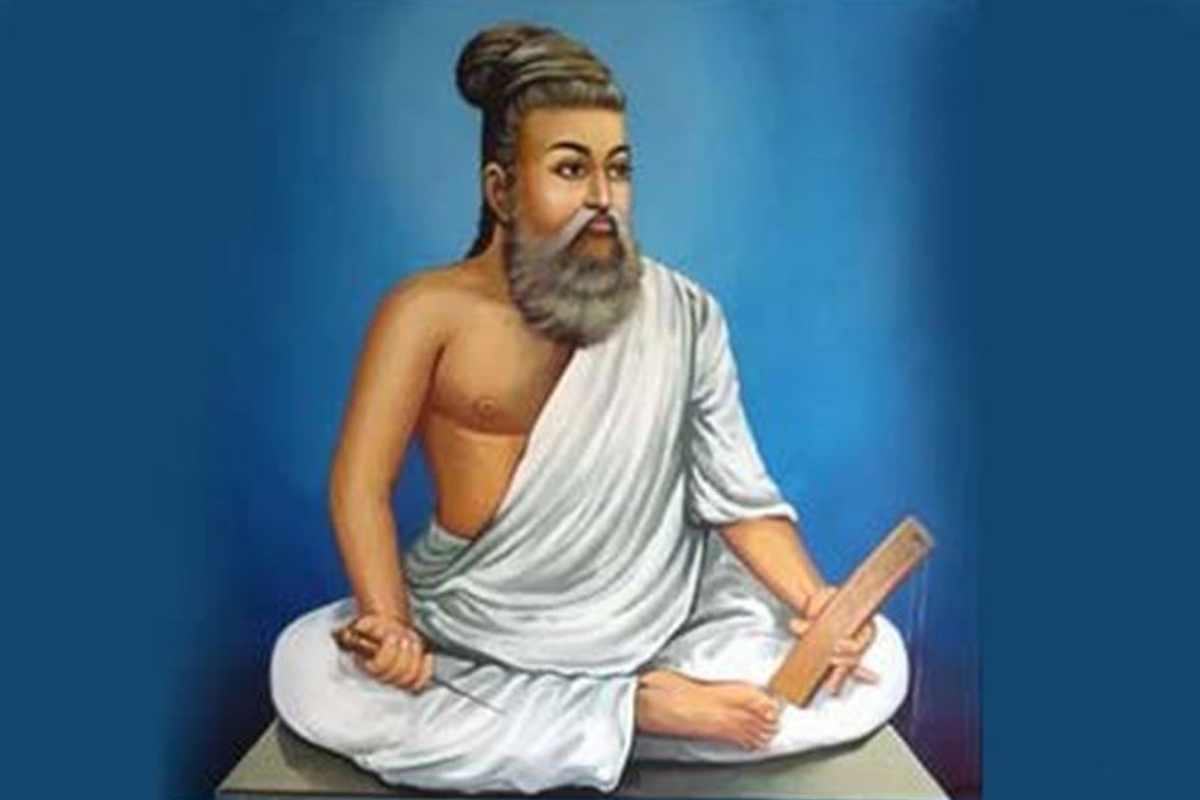As it did while appropriating Sardar Vallabhbhai Patel and Bhagat Singh as its icons, the Bhartiya Janata Party is trying to appropriate Thiru Valluvar, venerated Tamil poet who lived in the first century BC. He had no religious identity. The Tamil Nadu unit of the BJP has put up a lifesize statue of Valluvar in front of Kamalalayam, its state headquarters in Chennai, draped in saffron against the traditional white dhoti, Vibhuti (sacred ash) splattered on his forehead and arms and a rudraksham strung around his neck, giving a distinct Hindu look.
The party cadres and functionaries have been asked to register the unveiling of the ‘new look’ Valluvar in their official and personal twitter handles and other social media platforms with the Valluvar hashtag. Muralidhar Rao, BJP’s national general secretary, has asked his party workers to step up and sustain the Valluvar campaign with a view to gaining a foothold in Tamil Nadu. Popular Tamil film star Rajinikanth, on whom the party was relying to spread its wings, has unequivocally distanced himself from the BJP and said he would not fall into the trap of safforanising Valluvar.
Advertisement
“Given the persistent accusation that I am the BJP’s face in the State is only to be expected given the current state of politics in Tamil Nadu. There is no authentic information about Valluvar’s life. Legend has it his father was a Brahmin and mother belonged to a Scheduled caste. Thirukkural, his immortal work, is a comprehensive manual of ethics, polity and love. It deals with the duties of man as a householder and as an ascetic. C Rajagopalachari, in the preface to his English translation of Valluvar’s classic wrote, “Thirukkural is one of the oldest of extant Tamil books. It is generally accepted as belonging to a period anterior to the second century AD. Some schools place it in the first century BC.”
Valluvar was one of those rare and great men whose catholic spirit rose above all denominations and whose vision was not clouded by dogma or prejudice of any kind. His teachings elude classification on any denominational basis. Valluvar’s approach to moral doctrine was marked by a very thorough knowledge of human psychology and a desire to help imperfect men with practical hints in the struggle against evil. The poet brings everything down to the level of practicality without losing hold of the ideal.
The BJP’s bid to appropriate and saffronise the secular universalist poet as a Hundutva icon has led to desecration of a Valluvar statue at Pillaiyarpatti in Thanjavur last week. The government has ordered construction of an enclosure to safeguard the statue from vandalism. Meanwhile, BJP cadres are performing milk abhishekam and aaradhana to the statues of Valluvar elsewhere in the State. The venerable poet must be laughing in his grave.
